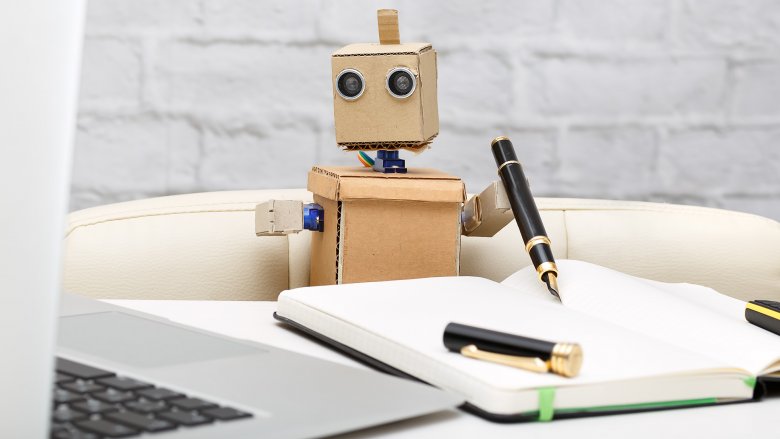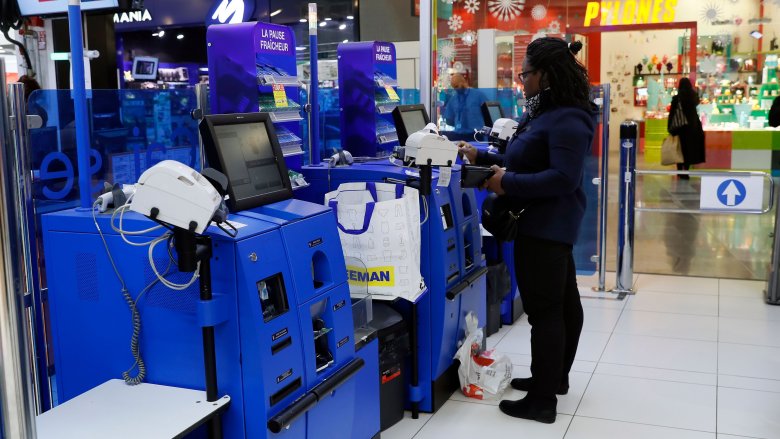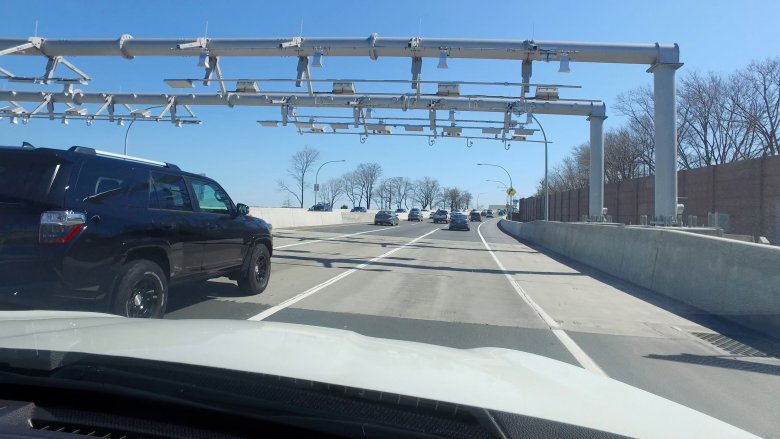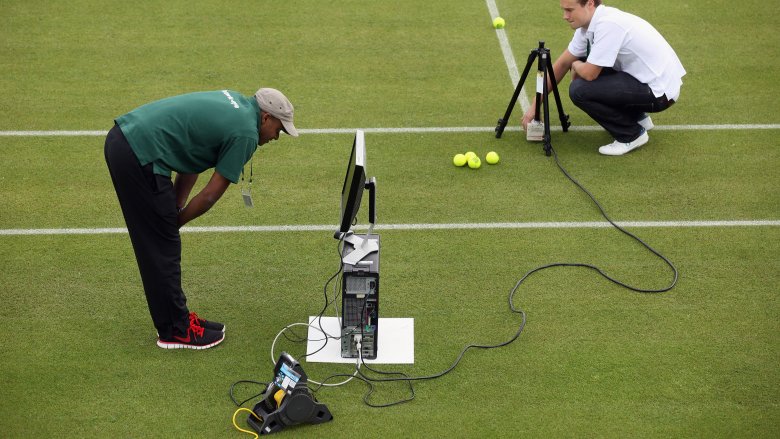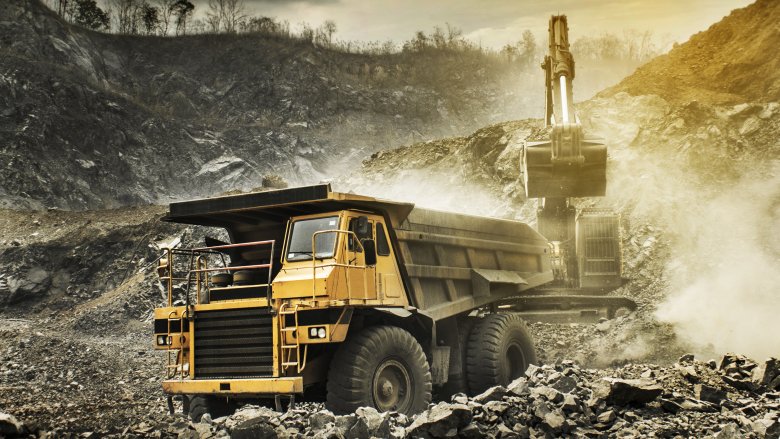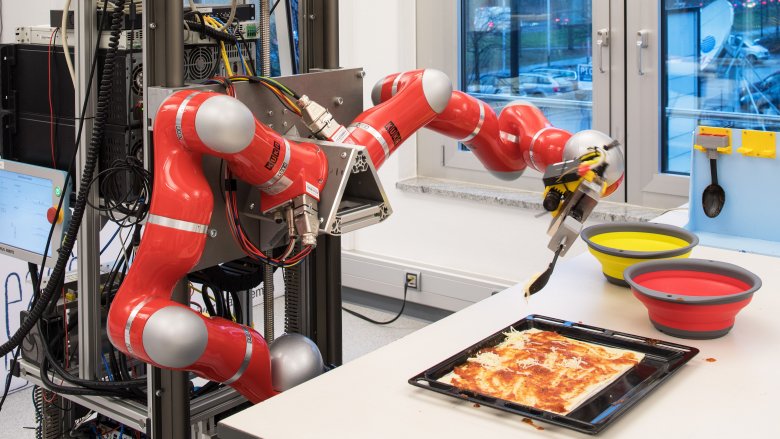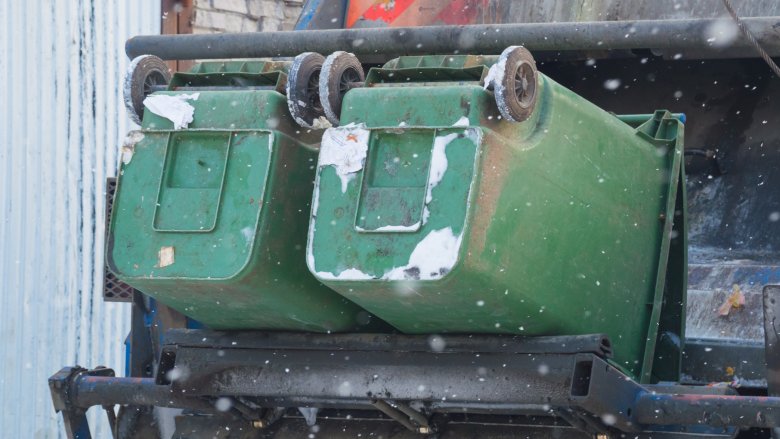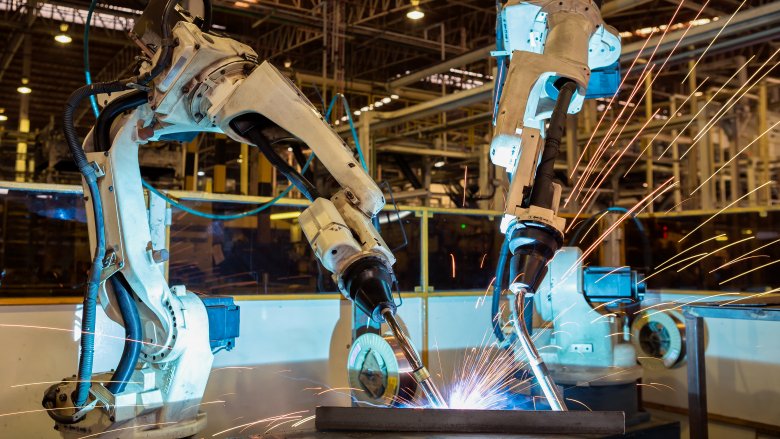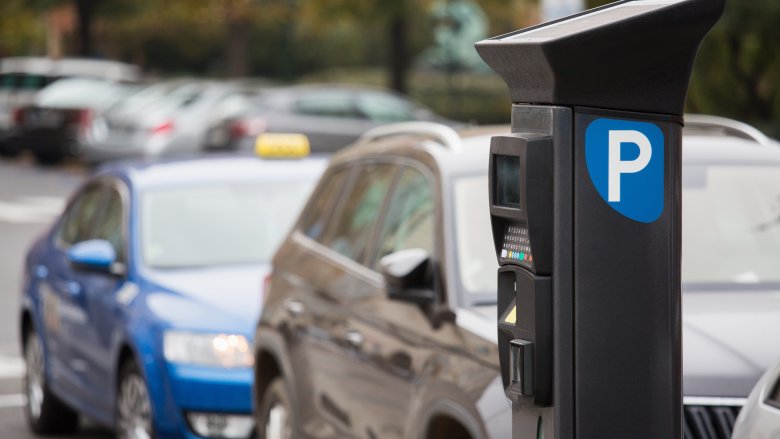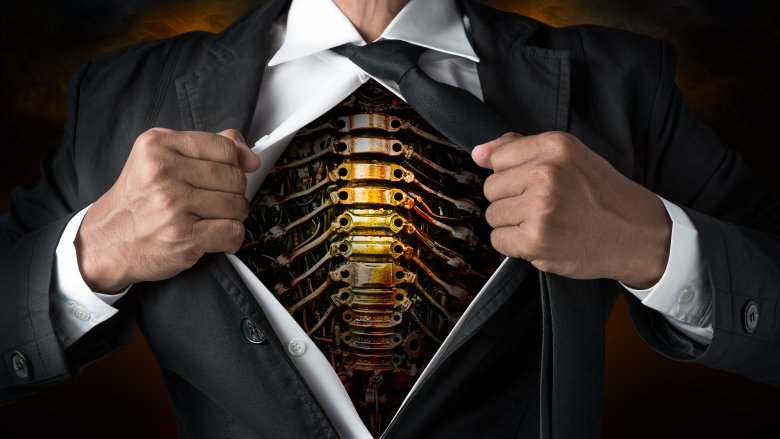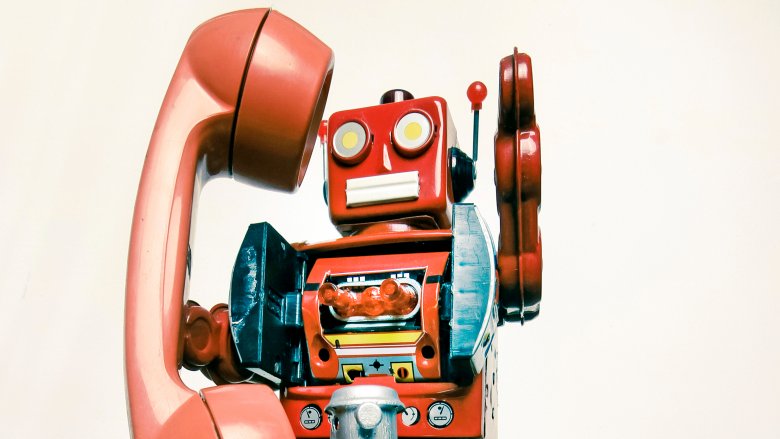Jobs That Won't Exist In 10 Years
We may receive a commission on purchases made from links.
A world populated by robotic workers? That used to be the sort of wackiness that science fiction fans debated, not economists. But it's happening fast. Sure, robots will (probably) never replace our artists, athletes, novelists, or teachers ... but when it comes to customer service, manual labor, or factory work? Robots drive down costs, limit workplace injuries, and don't unionize or ask for benefits. No wonder automation is rolling toward us like a (self-driving) truck.
What comes next? As a society, we need to move fast to determine whether the new automated world can create a social utopia with better jobs or if it'll instead worsen the severe economic divisions already tearing apart the population. Innovative solutions will be necessary, whether it's Bill Gates' notion of robot taxes, as described by Quartz, or the increasingly talked-about UBI — universal basic income — for every citizen. Either way, here are some of today's jobs that will either be automated in the near future or put to bed by other economic factors.
The cashiers will probably go first
If there's one job that's already going the way of the dinosaurs, it's the old-fashioned cashier. Maybe you genuinely enjoy making small talk with the people who swipe the bar codes, but cashier positions are becoming increasingly unnecessary. Every year, your local grocery store devotes increasing space to self-checkout lanes. Self-checkout machines aren't perfect yet — The Atlantic wrote in 2018 about current issues with shoplifting — but the technology is getting increasingly advanced, with the polished diamond of all self-checkout systems being the Amazon Go store, which requires no checkout whatsoever: no lines, no scanning, just grab your items and walk out the door.
That's futuristic stuff, but how long will it be until every store adopts these practices? Sooner than you might think. For example, Business Insider notes that Jack in the Box CEO Leonard Comma has openly stated that "it just makes sense" to replace human cashiers with machines. As summarized by CNBC in 2018, giant retailers like Walmart and Kroger are both rolling out new kiosk programs to replace cashiers, with the eventual goal being a system similar to Amazon's. It's happening, folks, and it won't be long now.
Tolls aren't going away, but toll booth workers are
Depending where you live, the whole "driving through toll booths" thing is either a weird thing your East Coast friends complain about, or a daily annoyance that eats up your cash every week. If your local area uses tolls, you're probably familiar with those little dashboard devices, such as E-ZPass transponders, which allow you to simply drive through and have the toll amount automatically deducted from a balance you refill every couple of months. As you've probably guessed, these transponders are a sign of things to come.
According to USA Today, more and more states have hopped onto the electronic, cashless bandwagon, ditching the traditional "booth" — where drivers slow down and cause traffic jams — much to the relief of daily commuters. Though most drivers are happy about the change, there are kinks to be worked out. As WGBH explains, Massachusetts locals and visitors have both complained there aren't clear indicators of how much these new tolls cost before you drive through them, and some people have uncovered annoying surprises in their bank accounts a few days later, particularly when fees rise without warning.
The umpire of the future is a robot
Obviously, we'll probably never see athletes being replaced by robots. Seriously, who would even care about an automated team of Red Sox players taking on an android-populated Yankees? Talk about scripted ... er, coded? Umpires and referees, on the other hand, have a 98.3 percent chance of being automated, according to NPR.
That said, don't expect to see metallic C-3PO lookalikes running around in those stylish black and white striped shirts. Instead, it's more likely that automated referee services will be subtly integrated into the games we know today, such as how Major League Baseball is moving to incorporate an "electronic strike zone," according to NJ.com. This would automatically register balls and strikes, thus eliminating time-wasting debates about bias or fairness. According to the New York Times, tennis also advancing toward a future of computerized line judges, using electronic devices such as Hawk-Eye Live, which is an upgrade of the Hawk-Eye system already in use. While some degree of human involvement will still be required, it seems exceedingly likely that current umpire and referee jobs, as we know them, will have to evolve significantly.
Coal is (almost) burnt out
Workers employed by the U.S. coal industry aren't being replaced by robots, but instead, by an even more unbeatable opponent: economics. As Reuters explains, U.S. coal is experiencing an unprecedented (and likely irreversible) decline, as utility companies are shutting down coal facilities, not building new ones, and instead switching to more cost-effective energy sources like natural gas, solar, and wind. As a result, people employed by U.S. coal will need to move toward other energy industries if they want to stay employed. No amount of tax breaks, regulation cuts, or powerful support can change the fact that coal's market value is plunging.
According to Forbes, the future of energy is currently torn between natural gas and renewables, with natural gas likely to take over in the short term. However, since natural gas is also a nonrenewable fossil fuel, it's a likely bet that renewable energy will be the long-term victor, particularly as companies like Tesla roll out innovative products like solar roof tiles and large home batteries.
A robot named 'Flippy' will be flipping your burgers
No one ever claimed McDonald's hamburgers were fine dining. While there will probably always be a role in society for gifted chefs — both at home and at restaurants — the factory-like nature of fast food means it doesn't require much skill to unwrap a frozen patty, heat it up, and plop it on a bun. According to Business Insider, a fast food chain named CaliBurger got people talking when it launched a burger-flipping robotic arm named "Flippy," who made his debut in March 2018. Flippy was capable of grilling 150 burgers per hour, but he proved so popular — with so many customers coming in just to see him work — that the Washington Post reported he had to be temporarily decommissioned. Sorry, Flipster.
However, incidents like this are only a minor setback. Flippy and his robotic counterparts at other fast food chains aren't down for the count. For example, Business Insider points to other fast food robots such as Sally, the salad-making robot, and Bruno, who works in the kitchen for Zume Pizza. Once the bugs get worked out, these guys will probably become a regular presence in fast food restaurants around the world.
The droids are coming for your trash
Any city that doesn't want to look like a dumpster needs to hire people to go around town picking up the trash, but being a garbage man is a tough job that involves dealing with everyone's smelliest, nastiest, heaviest junk. To solve this problem, Volvo seems to have taken some ideas from Pixar's beloved film Wall-E and decided it was time to automate the trash pickup process.
According to The Verge, Volvo's ROAR program (Robot-based Autonomous Refuse) would employ two-wheeled trash-collecting robots to roll out from the truck, grab your garbage, stuff it in the truck, and then quietly bring the bins back to the curb. If this project kicks off as hoped, there will probably still be a human driving the lorry, and monitoring the robot — with the ability to take control if anything comes up — but the little robot will do all the heavy, smelly lifting. This one is still a few years off, at least, but it's not hard to imagine many companies and/or cities following Volvo's footsteps if it proves successful.
Factories will be fully machine-operated
While it's not uncommon to hear Americans groaning about the notion that United States manufacturing jobs are being "given away" to overseas workers, the reality isn't quite so simple. For one, those overseas sweatshops workers are highly exploited, underpaid, and forced to work overtime in unsafe working conditions, and don't even ask about health care benefits. Two, TechCrunch points out the vast majority of manufacturing industry jobs in North America — 85 percent — have actually been replaced by machines, not overseas workers. It's not hard to see why, either: From a purely corporate perspective, switching to automation is cheaper, safer, and more reliable than employing human beings.
Pretty soon, the manufacturing jobs we know today will be completely automated. Ideally, this has the potential to actually benefit today's factory workers, if it results in robots taking over all the grunt work, while (some) humans become more highly trained, specialized, and better paid. The same shift is taking place in China, where Foxconn, a Chinese supplier for both Samsung and Apple, replaced 60,000 factory workers with machines in 2016, according to BBC. The move to automation is also beginning to impact the textile industry, as described by Motherboard, though it might take a bit longer before machines take over that sector.
When the machines check your meter, you can't talk your way out of a parking ticket
It's hard to imagine a job that gets bashed harder than being a meter attendant. No one enjoys walking from car to car, leaving little tickets on people's windshields when they overstay their welcome and getting screamed at for enforcing the rules. Maybe that's why it's no big surprise that in the near future, this job is going to be staffed by robots instead of humans. Meet "Brigade," the self-driving motorcycle that may be coming to a town near you.
As described by Wired, Brigade will be designed to roam around town like a quiet, efficient RoboCop, looking for minor traffic violations. Ticketing cars that are parked too long — or in the wrong location — is just one of Brigade's functions, as the driverless bike would also deal with pesky issues like speeding tickets. The general philosophy here is if Brigade takes care of all this annoying traffic violation work, it would free up human police officers to focus on more important and dangerous issues. Besides that, a self-driving bike doesn't care if people yell at it, so no feelings will be hurt.
A robot will do your taxes
At the beginning of every new year, your mailbox starts filling with W-2s and 1099s, those little reminders that it's time to file your taxes — which is something you're either happy or unhappy about, depending how much tax you paid during the year. However, whether you prefer to use a computer service like TurboTax, meet up with an actual accountant at places like H&R Block, or print paper forms and torture yourself with them, according to Wired's Vasant Dhar, we're inching closer to a future where robots will automatically do your taxes for you.
Though Dhar, a data scientist and professor of information studies, believes there's still more work to be done before people trust computers with their taxes, he sees accounting as a job the robots will definitely be coming for. That said, some people — particularly the self-employed business owners out there — have more complex taxes to deal with than your average Joe and might prefer to continue using accountants for a long time.
The annoying phone robots aren't going away
Don't you love calling your internet company with a simple billing question only to get trapped in a convoluted phone tree for 30 minutes? Wait, what? You hate that?
Well, unfortunately for all of us, these robotic phone machines are just getting more and more common. All the customer service agents you'd rather talk to are getting edged out by their computerized competition, as described by The Telegraph, with companies like Facebook and Microsoft even employing chatbots you can text rather than calling, in case you feel like making the whole process even more annoying. This move to automation will hit especially hard in the Philippines, according to Newsweek, where call center work is seen as a valued profession that earns a better wage than most jobs. In order to handle the rise of automated call center services, companies in the Philippines are working to develop a more specialized workforce, trained specifically to handle complex calls involving finance, legal matters, and other issues no one wants to talk to a robot about.
Self-driving cars will replace driving jobs, sooner or later
These days, you can't even discuss "the future" without someone mentioning self-driving cars. We all know once the roads are filled with taxis that don't need human drivers, all the sweet new driving gigs we know today are going bye-bye, but the switch is happening faster than you might think. In 2017, Uber partnered with Volvo to develop a swarm of 24,000 self-driving SUVs, according to Business Insider. Meanwhile, Lyft is ramping up its own self-driving taxis, with The Verge reporting that the company started a pilot program in Boston at the end of 2017. Meanwhile, remember those self-driving trucks we saw in Logan? Well, those are also coming up fast — maybe even faster than driverless taxis — with The Guardian predicting that a major reason why almost all the world's biggest corporations are betting on self-driving technology is that they really want to get autonomous trucks rolling on the highways as fast as possible.
However, while the technology is coming up fast, societal doubts are putting the brakes on the self-driving market's most speedy ambitions. According to the San Francisco Chronicle, the tragic death of an Arizona woman who was hit by a self-driving Uber SUV has slowed down many of these programs. It might be a bit longer than previously expected before a driverless taxi gives you a ride, but it'll probably happen eventually.
